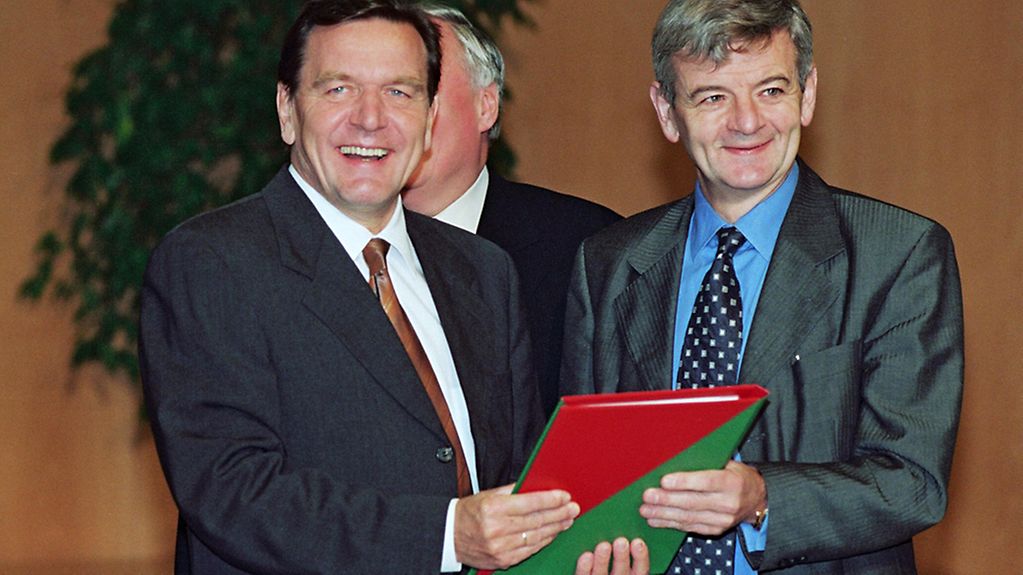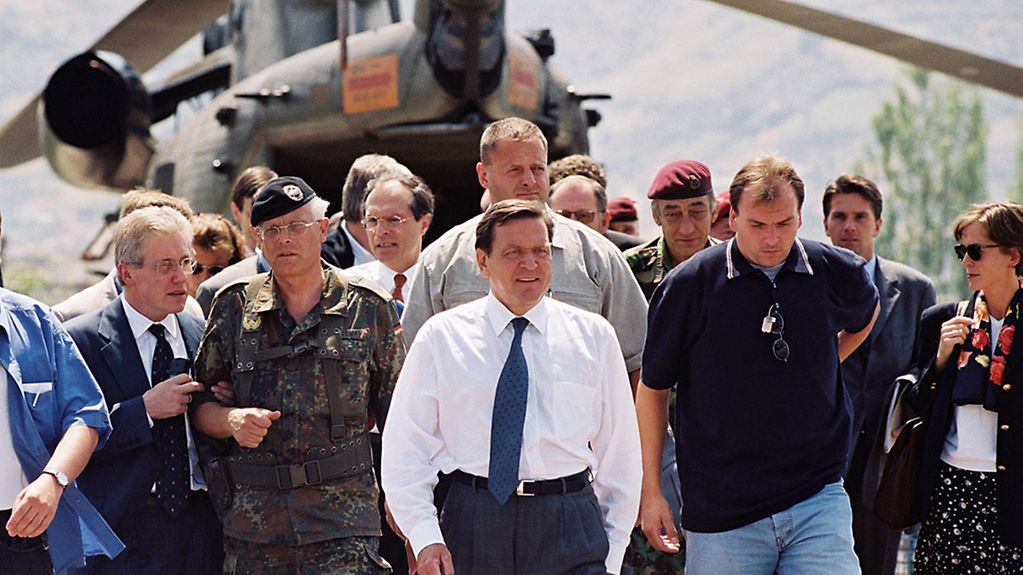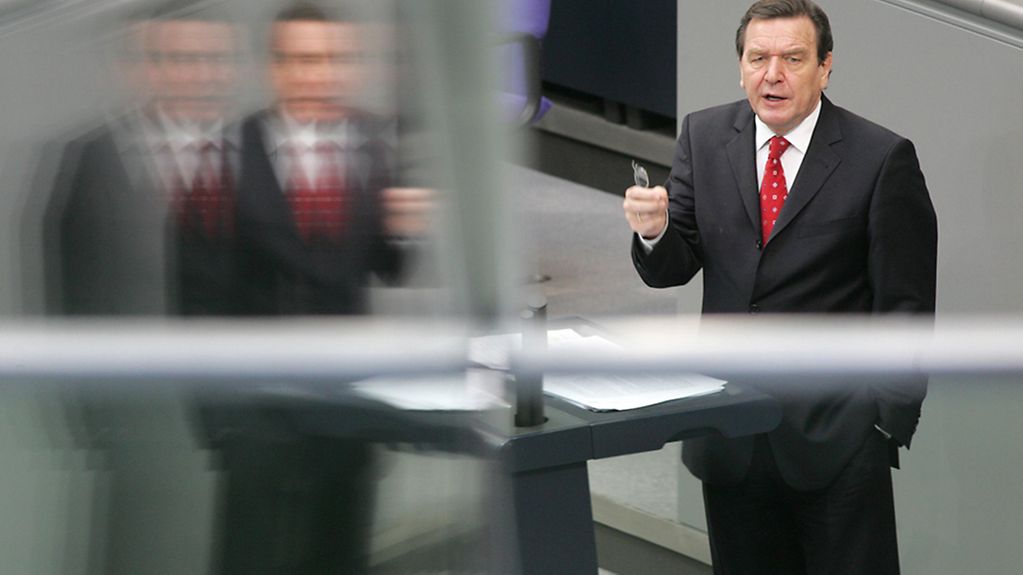SPD/Green coalition

Gerhard Schröder and Joschka Fischer
Photo: Bundesregierung/Fassbender
In 1998 Gerhard Schröder (SPD) was elected as the first Federal Chancellor by a majority of SPD and Alliance 90/The Greens votes in the Bundestag. His chancellorship was defined by the NATO mission in Kosovo, the phasing out of nuclear power and the Agenda 2010 reforms.
During the elections to the Bundestag in 1998 the SPD and Alliance 90/The Greens won a majority in the Bundestag. Gerhard Schröder became the leader of the new SPD/Green coalition.
At home, the government reformed the tax system and nationality law, for instance. The phasing out of nuclear power and better promotion of renewable energies meant Schröder’s government set a new course in energy policy. The “Alliance for Work” comprising the government, employers and employees was successful in stemming the high rates of unemployment.
The cash version of the euro was introduced in Europe in 2002. In addition, during Gerhard Schröder’s period in office many Eastern European countries acceded to the EU. At the same time Germany played a key role when it came to reforms to ensure an enlarged Europe remained capable of effective action.
NATO deployment in Kosovo

Gerhard Schröder in Kosovo
Photo: Bundesregierung/Schambeck
Shortly after taking office, Gerhard Schröder and his government were faced with having to decide whether to send German soldiers into armed conflict for the first time since the Second World War. After years of civil war on the Balkans the former Yugoslavia was falling apart. People were being persecuted, murdered and displaced in Kosovo. That was why Germany decided to take part in the NATO intervention to establish peace in Kosovo.
The United States’ military campaign in Iraq took place during Schröder’s second period in office. Gerhard Schröder declined to involve German troops in the campaign. However, the Bundeswehr did take part in the fight against terrorism and the reconstruction of Afghanistan. Gerhard Schröder regarded the attacks on the World Trade Center in New York on 11 September 2011 as an attack on Germany’s liberal model of life. He was convinced that democratic countries had to stand together in the fight against international terrorism.
In the summer of 2002 severe flooding along the banks of the Elbe River caused serious damage. The German Government’s resolute crisis management mitigated the consequences for thousands of people affected.
Agenda 2010

Gerhard Schröder in the Bundestag
Photo: Bundesregierung/Köhler
The domestic policy debate on the “Agenda 2010” programme of reforms defined Gerhard Schröder’s second term of office. Unemployment had risen to oppressively high levels and spending on unemployment benefit and unemployment assistance was becoming unmanageable. “The courage to change” was what the Chancellor called for in this period.
The Agenda 2010 reforms aimed to make the country capable of effective action once more. The German Government also called on its citizens to play their part. For example, unemployment benefit is now generally only paid for one year, the aim being that the unemployed should do more to find work themselves. At the same time those people who look for work themselves receive more support.
However, the Agenda 2010 and especially the labour market policy it entailed, which has since become known by the name of “Hartz Reforms”, were highly contentious issues. As a result the SPD lost several elections to Land parliaments.
In the face of the great resistance to his policies, Gerhard Schröder ultimately brought forward the elections to the Bundestag by one year. They were held on 18 September 2005.